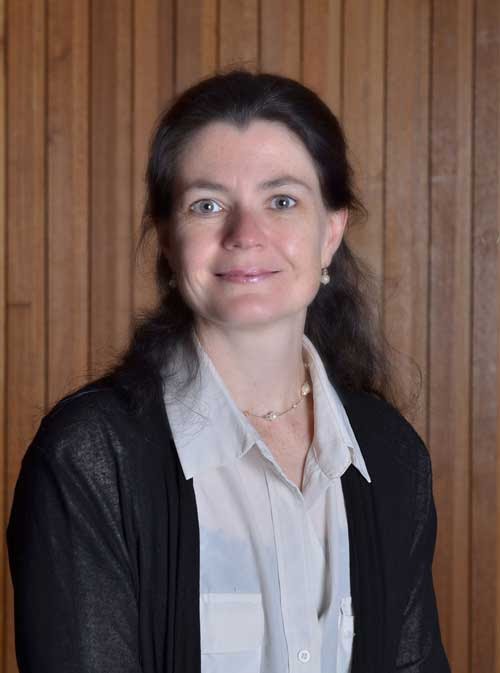
Dr Lisa Jardine-Wright is the Director of Isaac Physics and a Teaching Fellow of Churchill College. She was previously the Educational Outreach Officer of the Cavendish Laboratory (Department of Physics). Her particular expertise lies in supporting and encouraging students to progress their careers and aspiration in physics.
We spoke to Dr Jardine-Wright about her access work and the future she envisages for students coming from under-represented backgrounds.
What does your role entail?
A large part of my role throughout my career has involved widening participation, access and outreach work, and one of its main challenges, has been raising awareness of the work that the Departments, Colleges and University do to support and encourage students from under-represented groups to apply to Cambridge – making sure that every school in the country knows of the programmes that the University provides for free.
Once students and schools are aware of the programmes and opportunities, the second challenge is to enable students to have access to the support and resources that are on offer – the environment in which the student is living and studying may place restrictions on what they are able to do. How do they get to Cambridge for events? Will their school allow them time out to participate in a Summer School? Do they have time to participate in mentoring or remote learning initiatives? To try and address both of the challenges of raising awareness and enabling access, I have worked on projects with schools and teachers as well as with individual students who want to engage with our support but whose schools are unable to do so.
The key question for me is not about the number of access and widening participation initiatives that are available, but about how we can ensure that the programmes that we have are reaching all of the students that we want to support and engage. It isn’t always about doing more but about having a greater impact.
What is the aim of Isaac Physics and whom is it intended to support?
The project that I direct – Isaac Physics – is a project funded by the Department for Education, England to raise aspirations and attainment of students from Year 10 through to Year 13 to develop their confidence and ability to apply for STEM (Science, Technology, Engineering and Maths) courses at universities around the country. We support students in applying not just to Cambridge, but to apply to all research-intensive universities around the UK.
What is the importance of having young students of science, and particularly female students?
Science and Technology are crucial to the economy, sustainability and the community and we need more graduates in STEM degrees to support the Science and Technology industries and research and development. A-level physics and maths are important stepping stones to physical science and engineering degrees and therefore to have more students studying these degrees we need more students studying physics and maths at A-level.
In physics, women are underrepresented, even more so than in mathematics (at A-level). On average, roughly 22% of A-level physics students are women. This number has been around 20% for over 30 years. In mathematics, 38.5% of entries are women and in further maths 28.4% are women. The Isaac Physics project’s users are 39% women or non-binary and our aim is that by working with us, to develop confidence and fluency in physics and maths, a greater proportion of women will continue in STEM subjects at university.
Why do students often not feel comfortable applying for STEM subjects at university?
Students face similar challenges in accessing physics as they do in accessing Cambridge. All of which can be summarised in the comment that we often hear from students, “it’s just not for me”. For some, this is because they don’t think they are able, for others they don’t think they would fit in, and there are many other individual reasons too. Such sentiments can arise from societal pressures (at school, at home or in wider society), educational disadvantage, financial concerns, stereotypes, misconceptions, not understanding or appreciating its value for their future or career, or fear of failure.
In all of the work that I have done in raising aspirations to apply to Cambridge, the one thing that has a real impact on their perception that “it’s just not for me” is to bring school students (and equally importantly their teachers) to Cambridge to see the people and students that live and work in the University; to experience the environment, imagine what it would be like to be a student, sit in a 400-seat lecture theatre with 399 other students. Churchill College has a strong history of doing this for under-represented groups across many subjects – hosting many Sutton Trust Summer Schools and running STEP preparation residentials to name just a couple.
To give a further recent example, Churchill, in collaboration with Isaac Physics, has hosted widening participation residential courses for Physics since 2018 to help raise student attainment at A-level in physics and maths. The students attend for free, their accommodation and meals are paid for and they receive travel bursaries to ensure they can get to the event.
Visiting Cambridge and the College is incredibly important in dispelling some of the sentiments that inhibit students from applying.
How has the pandemic affected your work?
Bringing students to Cambridge has not been possible so our work has continued remotely, online. This has had some advantages for the students, particularly if they have caring responsibilities or part-time jobs which mean that their time is limited and they are unable to take a weekend away. Online, they are still able to meet a range of people and students from Cambridge but this important factor of “it’s just not for me” I believe will still linger until a student is able to visit and experience the diversity of Cambridge – to see that not all colleges are hundreds of years old, that some colleges are all female, and to experience the many positive aspects of what Cambridge has to offer in its tutorial support, its academic provision and college facilities such as libraries, gyms and music studios.
What other changes can be made in order to ensure that under-represented students feel confident applying to university?
Enabling and encouraging under-represented students to apply must also include changing society’s and the media’s image of Cambridge and the associated misinformation and bias. I am always disappointed that the many events and initiatives that the Colleges, Departments and University do run are not publicised and advertised more widely in the press – to reach students that otherwise might not hear – sadly good news doesn’t often make headlines.
In summary, there is more that can be done but we can have greater impact with what we are already doing by making sure that every student knows what is available to them and that Cambridge could be for them – individually we can do a lot by dispelling myths, stereotypes and inaccuracies that arise in any conversations we have, with friends, with family, going back to school, talking to teachers – make sure you find out the facts first though!
I once spoke with a teacher who had been helping students to apply to university for many years and they told me that it was difficult to know whether to encourage a student to apply to Cambridge as their chances were 100 to 1. When I said that on average the number of applications (at the time) per offer across all subjects was in fact about 4.5 to 1, they didn’t believe me until I showed them the admission statistics which the University publishes every year.
In my work, my aspiration is to support students to enable them to choose whatever they want to do – to not feel that their choices are restricted because they are from a particular group or demographic, or because they don’t know what they need to do or because feel or have been told that they aren’t able or bright enough. Cambridge is intense, it is fast paced and it is hard work – not everyone will enjoy and thrive here. If a student decides not to apply because it isn’t for them that is their decision, but what we have to do is make sure that they know that the choice is open to them.
To find out more about the research that is ongoing in this area, follow the link below: https://www.ucl.ac.uk/ioe/departments-and-centres/departments/education-practice-and-society/science-capital-research
